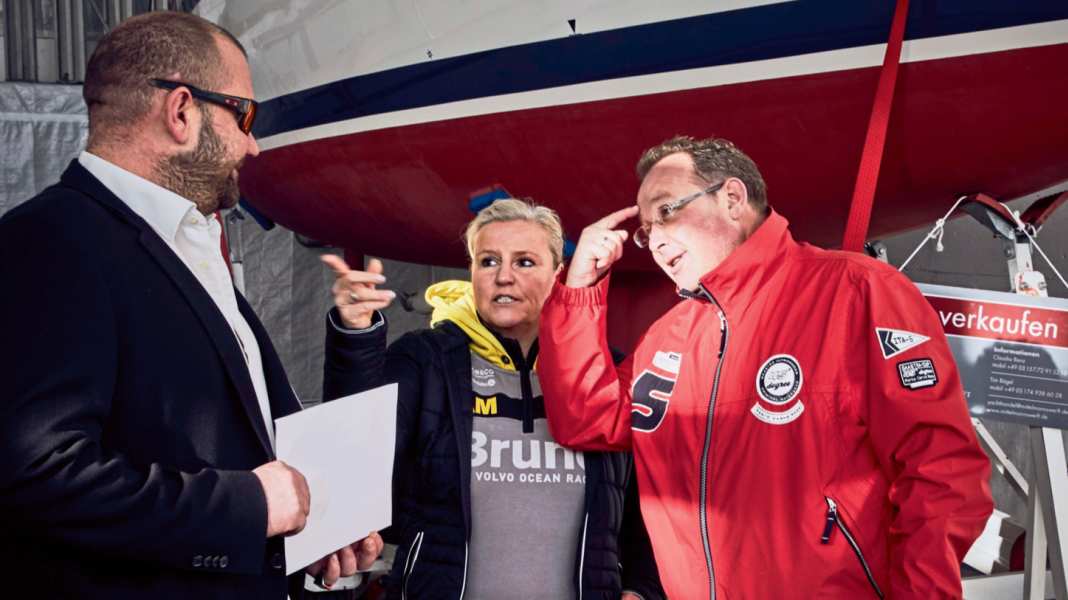
Yachting is more than just a hobby - for many sailors it is a passion, a lifestyle and a community. But even in this world, conflicts are inevitable. Anyone who refits their boat, buys a second-hand yacht or gets into a dispute with a shipyard quickly finds themselves confronted with legal problems. Disputes also arise during chartering, at regattas or when dealing with insurance claims.
The logical reaction is to go to the ordinary courts. But they are overloaded, slow and technically overstretched. And that creates completely new problems.
More on the subject of "Yacht law":
German civil courts are already at their limit in terms of personnel due to demographic developments. According to forecasts, up to forty per cent of today's judges are likely to leave the courts in the next 15 years. It is already not uncommon for proceedings to take several years, even in cases that are not economically complex.
In addition, the German court system is designed for classic civil matters. There are no specialised chambers for water sports law or technical issues. In practice, this means that judges have to rely on time-consuming expert opinions to understand complex issues. This makes proceedings slow and expensive. Nevertheless, incorrect professional decisions cannot be ruled out due to a lack of specialised technical, insurance and sporting knowledge. Public court proceedings in a yachting-related dispute are therefore often inefficient, cost-intensive and frustrating.
An arbitration tribunal has clear advantages
The alternative would be an arbitration tribunal specialising in legal issues relating to yachting. Unlike state courts, such a tribunal is a private dispute resolution body that works according to the rules of Alternative Dispute Resolution. The proceedings take place confidentially, without public hearings or media attention. The arbitrators are lawyers, experts and practitioners with proven experience in yachting.
The parties themselves can determine which language, which rules and arbitrators are used. The procedure is flexible, efficient and tailored to the specific requirements of the industry. For sailors, this means more control, more expertise and lower costs.
A decisive advantage lies in the composition of the adjudicating body. A panel of experts who are familiar with both the legal and technical aspects of water sports makes the decision. This means that expert opinions are unnecessary in many cases. The proceedings are also faster because there are fewer formal procedures and no staffing bottlenecks. The costs are also more transparent and easier to plan, as fixed fee models apply and the number of parties involved remains manageable.
The procedures can be carried out in writing, digitally or orally. They are also internationally compatible. An arbitration award can be enforced worldwide, which is particularly important for yacht purchases abroad or cross-border disputes.
Establishment of arbitration proceedings
Ideally, arbitration proceedings are already agreed in an arbitration clause when the contract is concluded - such as a purchase agreement, refit order or charter agreement. If a dispute arises later, one party submits a request for arbitration in which the subject matter of the dispute, the parties involved and procedural proposals are specified. The parties then agree on one or more arbitrators.
The procedure is based on jointly agreed rules of procedure or draws on the established rules of a specialised arbitration court such as the International Yacht Arbitration Court.
This is followed by the exchange of written pleadings with arguments and evidence. An oral hearing does not have to take place, but it can, either in person or virtually. At the end, there is a binding arbitration award that concludes the proceedings and is enforceable worldwide.
Arbitration court necessary response to systematic loophole
The structural problems of the public justice system will intensify in the coming years. At the same time, the number of yacht transactions, charter agreements and international co-operations in water sports is increasing. A specialised arbitration tribunal is not a legal gimmick - it is the necessary response to a gap in the system.
The social shift towards more digitalisation, mobility and self-determination also speaks in favour of this form of dispute resolution. People who are at home on the water do not want years of litigation on land, but rather quick, fair and competent decisions.
Whether you are a cruising sailor with mooring problems, a charter customer with a defective yacht or a policyholder in a dispute over storm damage - they all benefit from a procedure that is close to practice, flexible and fair.
An arbitration tribunal for yachting is therefore not only sensible - it is long overdue. Together with my European partner law firms, I have decided to make this contribution to improving dispute resolution in the maritime leisure industry. This is how the Yachting Court of Arbitration association came into being, whose inaugural meeting took place in September in the inspiring setting of the Cannes Yachting Festival.
Multiple networking options
The response from the industry was encouraging. Shortly after the organisation was founded, we were able to recruit proven experts from the fields of technology, law, insurance and yachting as arbitrators. In addition, we already have a set of arbitration rules that fulfil the high standards of fairness, transparency and practicality.
Our aim is not only to convince legally, but also to create trust - with a procedure that fulfils the special requirements of yachting.
Particularly pleasing is the prospect of close and fruitful co-operation with the International Yacht Arbitration Council (iyac.org), which has been committed to the professionalisation of arbitration in the yachting sector for years. The synergies between our practical focus and the international networking of the IYAC open up promising opportunities - be it in the mutual recognition of arbitration awards, joint training formats or uniform standards.
We are also in close dialogue with the relevant German and European professional associations and the leading water sports associations in Europe. Our aim is not to operate arbitration in yachting in isolation, but to integrate it into existing structures and networks and establish it there as a competent, practical addition.
The author: Benyamin Tanis

From boat purchases to tax and customs matters to the settlement of claims: The sailor and lawyer from Kiel has been advising and representing his clients for many years with a team of several lawyers, boat and shipbuilders and a Europe-wide network of partner law firms in all legal matters relating to yachting.

